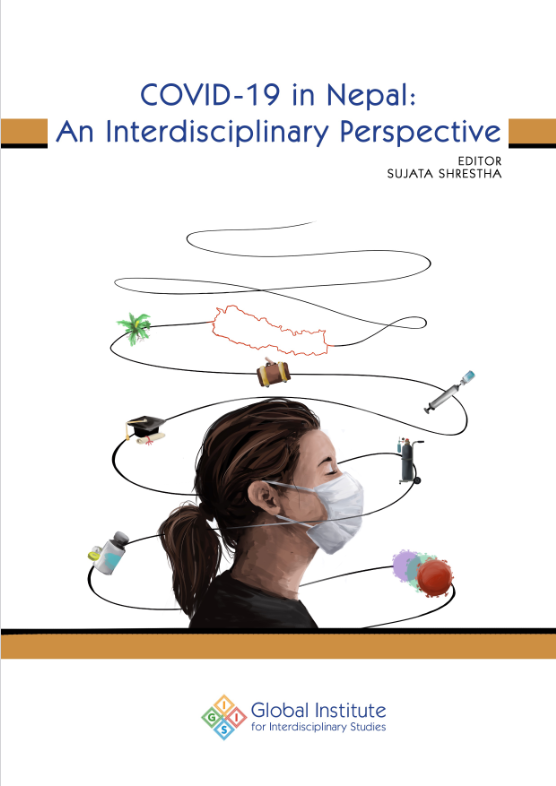Publication Details
COVID-19 in Nepal: An Interdisciplinary Perspective

The coronavirus (COVID-19) pandemic has impacted every country, sector, community, class, and gender. The magnitude of its impact has shaken both developed and developing countries. The healthcare facilities, educational institutions, travel and tourism industries, entertainment, arts and cultures, and transportation sectors are the hardest hit sectors. The livelihood, health and economy of people from different gender, ethnicity, religion is impacted by COVID -19. The first COVID-19 case was reported in the Chinese city of Wuhan on 31 December 2019. The World Health Organization (WHO) declared the disease a public health emergency of international concern on January 30, 2020, and the disease is declared as a public health pandemic on March 11, 2020. The virus is widespread in 223 countries including Nepal (WHO 2020). In Nepal, the first confirmed case of COVID-19 was on 23 January 2020 and the first reported death was on 16 May 2020. Due to the rapid transmission rate of the virus from one person to another person, the Government of Nepal had announced the nationwide lockdown starting from 24 March 2020 to prevent the person-to-person transmission. Domestic and international travel was restricted, schools were closed, the mass gathering was restricted to prevent the virus transmission that has impacted many sectors. On the other hand, it had opened the opportunity to work distantly, teach online courses and share the knowledge between scholars from different countries through online platforms.
When physical gathering was halted by the Government of Nepal during the COVID-19 pandemic, the Global Institute for Interdisciplinary Studies (GIIS) organized a series of webinars from 18 May to 24 August 2020 to share the knowledge about the various aspects of pandemic and its impacts on different sectors of Nepal. The webinar series covered the following dimensions of COVID-19: 1) COVID-19 pandemic in the framework of biological invasion, 2) economic impacts of COVID-19 on tourism and remittances, 3) preparedness of Nepalese health system to combat COVID-19, 4) rethinking governance amid pandemic, 5) international migration from Nepal in the post-COVID-19, 6) impacts of COVID-19 through gender perspectives, 7) health impacts of COVID-19 from gender perspectives, 8) gendered impact of COVID-19 to research, 9) models, scenarios and trends of COVID-19 in local to global scenarios, 10) effectiveness of face mask to prevent SARSCOV2 transmission, 11) household energy consumption and adaptation behaviors during the pandemic, 12) monsoon induced disaster play double whammy during the COVID-19 pandemic, 13) COVID-19 related health research in Nepal, and 14) pandemic and environmental change. This document is prepared based on the talks delivered in the webinar. Each paper was peer reviewed.
Download Document View Document

